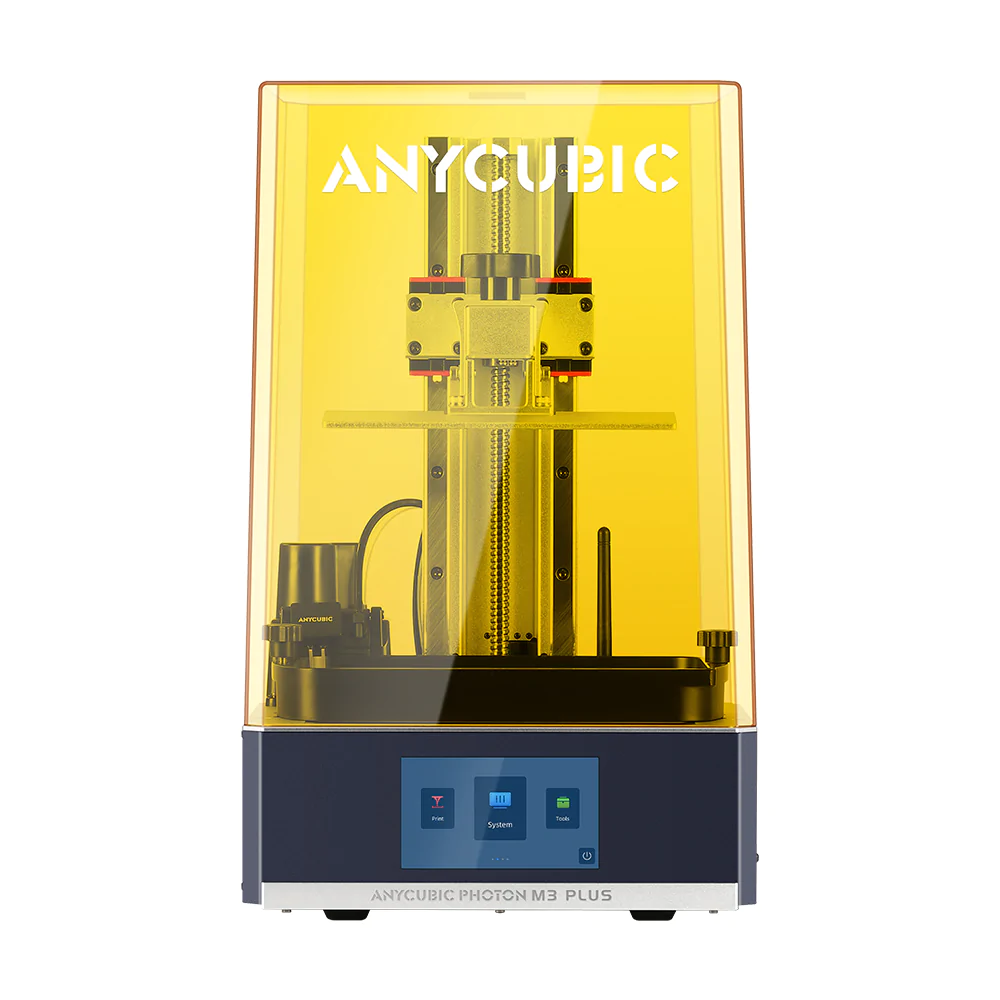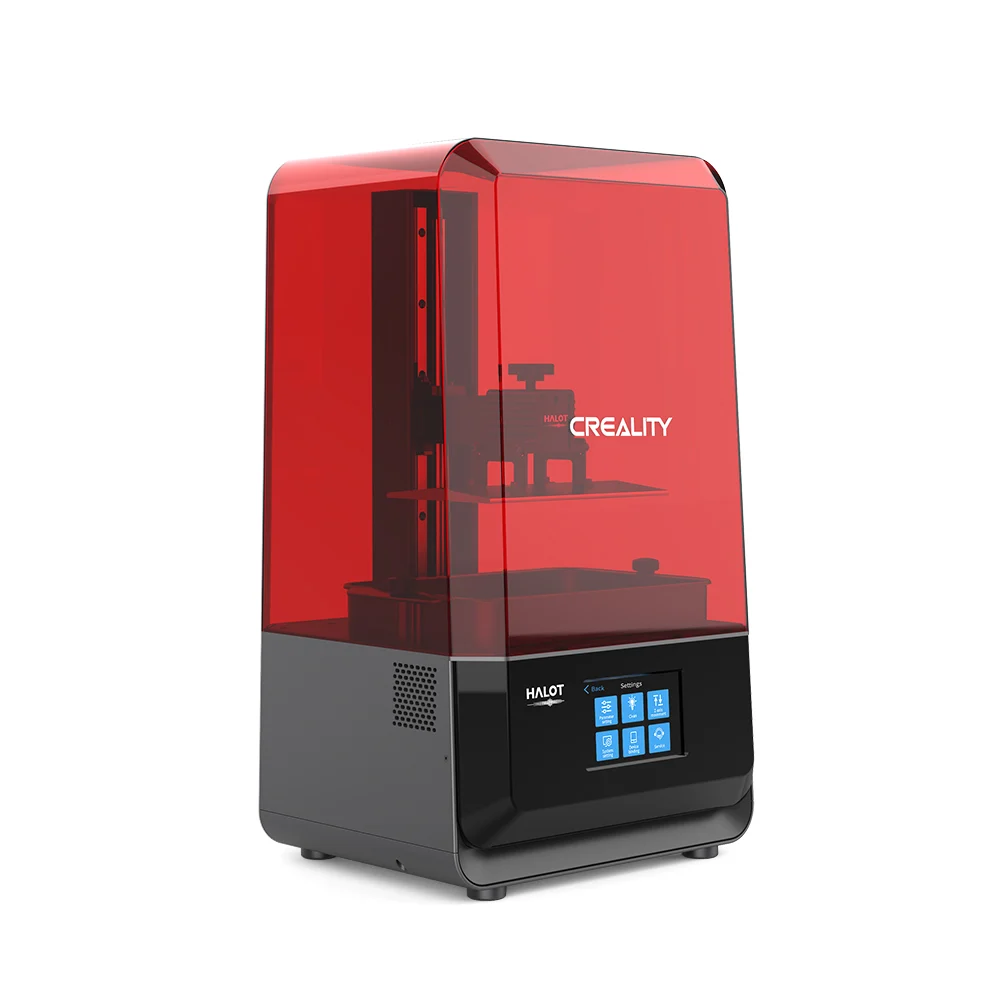Compare Photon M3 Plus vs Halot Lite
Comparison between the best 3D printers
Choose the best 3D printer at the best price. The cheapest 3D printers are here.
Buy a 3D printer here with 3D Fila.
 |
 |
|
| Model | Photon M3 Plus |
Halot Lite |
| Printing Material | Resin | Resin |
| Buy Resin for Anycubic Photon M3 Plus | Buy Resin forCreality 3D Halot Lite | |
| Estimated price | $430,00 | $400,00 |
| Manufacturer | Anycubic | Creality 3D |
| Release Year | 2022 | 2021 |
| Print Volume [mm] | 197x122x245 | 192x120x200 |
| Printer Size [mm] | 290x360x475 | 330x301x572 |
| Weight [kg] | 11 | 10,6 |
| Power Loss Recovery | NO | NO |
| Technology | LCD | LCD Mono |
| Screen Resolution | 6k | 4k |
| Max Print Speed [s/layer] | 1 | 1 |
| Maximum Resolution [mm] | 0,01 | 0,01 |
| Processor | ||
| Display | Display touchscreen 4,3'' | Display touchscreen 5'' |
| Power Supply | 150 W | |
| Connectivity | USB / Wi-Fi | SD / USB |
| Operating systems | Windows, Mac, Linux | |
| Date of registration in the system | 2023-01-19 | 2022-11-04 |
| Release date | 2022 | 2021 |
| Extra features | The Photon M3 Plus printer stands out for its automatic resin filling system, capable of keeping the tank always full. It offers wireless connectivity and support for the Anycubic Cloud app, allowing remote control and monitoring, including with an optional camera. Its 34-micron resolution, provided by a 9.25-inch monochrome LCD screen, ensures high-precision prints. Printing speed is remarkable, with a layer curing in 1.5 seconds. Other features include a large build volume, laser-etched build plate, and compatibility with a wash and cure station. | Crealitys Halot Lite printer stands out in the mid-size resin 3D printing segment, with a build volume of 192 x 120 x 200 mm and 50 micron resolution. It offers a monochrome LCD for fast and durable printing, and an upgraded light source that ensures over 80% uniformity across the print bed. It includes Wi-Fi connectivity for remote control and updates, an ARM Cortex CPU for efficient performance, and is compatible with Halot Box and Lychee slicing software. It also has an activated carbon filter to reduce odors. |
| Support for multiple colors and materials (AMS and CFS) | NO | NO |
Notes * |
||
| Cost-benefit | 8 / 10 | 8 / 10 |
| Hardware | 2.4 / 10 | 1 / 10 |
| Tela | . | . |
| Print volume | 3 / 10 | 3 / 10 |
| Performance | 9 / 10 | 9 / 10 |
Conclusion |
| In comparing the Photon M3 Plus and Halot Lite 3D printers, both models offer solid specifications suited for high-quality resin printing, yet they cater to slightly different preferences and budgets. The Photon M3 Plus, priced a bit higher, boasts notable features such as a larger build volume, a superior 6K screen resolution, and an automatic resin filling system, enhancing user convenience and precision. Its faster layer curing time and compatibility with the Anycubic Cloud app for remote monitoring further position it as a robust choice for dedicated users seeking advanced functionality. On the other hand, the Halot Lite presents a compelling alternative at a slightly lower price. It offers decent print specifications with a focus on uniformity and efficient performance, thanks to its upgraded light source and ARM Cortex CPU. While lacking some of the advanced features of its counterpart, it still delivers reliable quality and ease of use, bolstered by Wi-Fi connectivity and an activated carbon filter for odor reduction. Ultimately, the choice between the Photon M3 Plus and Halot Lite boils down to individual priorities. If advanced features, print quality, and user-friendly automation are paramount, the Photon M3 Plus would be the recommended option. However, if one is looking for a more budget-friendly solution without compromising too much on quality and performance, the Halot Lite remains an excellent choice. Both printers offer good value within their respective price ranges, achieving solid performance ratings that reflect their cost-effectiveness in the realm of 3D printing. |

